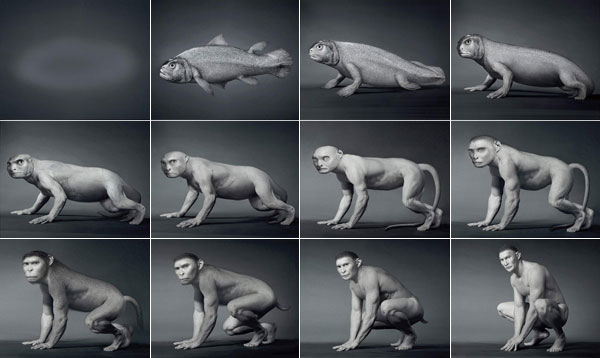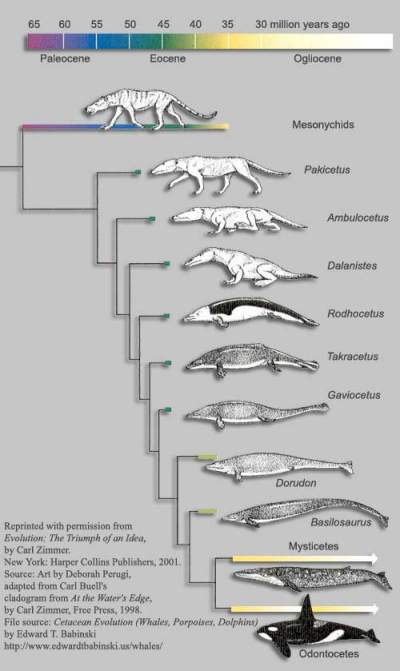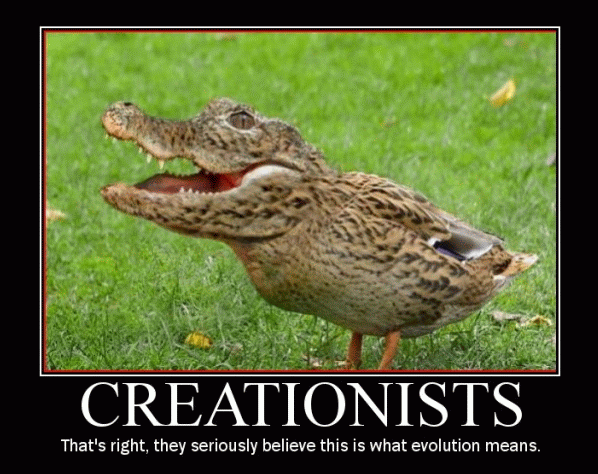Here's my take and what I understand about evolution:
Individual species do show a capability and proclivity to adapt to their surroundings, and an argument can be made that they "evolve" over time. However, as advanced geneticists will tell you, there is a genetic boundary between one species and another. That is, there is a physical limit to the degree that a species can change, over time or via direct hybridization experiments.
So while Darwin's thesis that species will adapt to improve their survivability is valid, there is genetic evidence within and between defined species that belie the claim that one species can transform itself into another altogether. Hence, the hypothesis that 'evolution' can account for the origin of multifarious species through transmutation--a single-celled organism ultimately becoming a monkey, then a human--is not supported by modern biology and genetics research.
Can definitely have a conversation about the concepts of evolution if you wish, since you don't seem to refuse to understand the 2+2=4 parts of evolution and using that to try to argue the non-existence of the quantum physics part of evolution.
To accurately define things like natural selection, you have to accurately define evolution. The definition is very simple. Evolution is the change in gene frequencies in a population over time. What does that mean exactly? Well, a change is simply a percentage. 30% of this allele to 70% of that allele, to make it simplistic goes to 35-65% over the course of, say, five generations. And take note, this includes the entire genotype, and not just the phenotype. Genotype is the entire genetic code, while phenotype is just the physical, observational traits. A population is a group of organisms willing and able to reproduce. So if that population changes, either with the addition of a separate, compatible population, or a separation of one population into two, through environmental or social causes, the population has changed, and thus the gene frequencies will have changed.
Natural selection is the most talked about element of evolution, and it is the most common driver of evolution. It's also one of the most obvious logical statements when you actually look at it. Basically, natural selection states that the genes in organisms that reproduce tend to last longer than genes in organisms that don't reproduce. Natural selection doesn't really affect genes that aren't part of the phenotype, since the concept is about how organisms over time are influenced by the environment, physically and behaviorally.
As far as speciation goes, and then moving into wide reaching evolutionary process, the definitions start getting a bit hairy since there's no good way to define species. From a simplistic standpoint, speciation is when two previously compatible populations no longer are able to produce viable offspring able to reproduce, when one species becomes two, given the latter part of the definition is a common way to define species. This is easy enough when dealing with tremendously complex organisms. Humans and chimps can't reproduce, thus are different species. Labradors and German Shepherds can reproduce, so they're the same species. The problem is multi-fold. First, mankind has a need to compartmentalize. This is different from that. This is not as different from that as that over there, etc. The idea of species and classification of them was started at the top, most complex side, and the definition of species and similar terms that work with complex organisms do not work as well, or not much at all when dealing with asexual prokaryotes and eukaryotes.
In any event, populations that branch and lose contact with other populations of the same species, can and will, over time, due to a wide range of evolutionary factors, become diverse and distinct enough to share a vast amount of genetic data but have that "genetic boundary" you mentioned when comparing the two populations synchronically after the two populations have evolved past the point of being the same species.





